In a country where women’s participation in the workforce remains low, a new initiative by Visa is aiming to unleash the untapped potential of female entrepreneurs. Visa, the global leader in digital payments, has set its sights on Pakistan with the launch of She’s Next – an advocacy program designed to empower and uplift women-owned small businesses through funding, training, and mentorship.
The inaugural edition of She’s Next in Pakistan, launched earlier this year in partnership with HBL, Pakistan’s leading bank, has already made waves by awarding grants worth $ 50,000 to five women-led businesses. But the program’s ambitions extend far beyond mere financial support. With the recent initiation of the She’s Next Club, Visa is fostering a community of like-minded women entrepreneurs, providing hands-on training, and facilitating valuable networking opportunities.
The timing couldn’t be more crucial. According to Visa’s 2023 Women SMB Digitization Index survey, women entrepreneurs in Pakistan are eager to learn from their peers and require specific assistance in key areas. Estimates suggest that 61% need help overcoming business problems, 54% want support developing online sales and 43% seek guidance on building a team of employees.
Perhaps most telling is that a staggering 98% of women surveyed expressed interest in payment-related training. This highlights both the challenges and opportunities in Pakistan’s rapidly evolving digital economy.
As we delve into the stories of the She’s Next grant recipients, two key themes emerge: how women-led startups are revolutionising education in Pakistan, and how they are embracing and driving digital change across various sectors, such as e-commerce, tourism and marketing. Their journeys offer a window into the transformative potential of women’s entrepreneurship in the country.
Revolutionising Education: coding the future
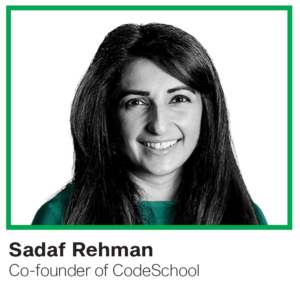
In the rapidly growing landscape of Pakistan’s EdTech sector, two startups stand out for their innovative approaches to preparing the next generation for a digital future.
The first one is CodeSchool, which aims to make coding fun and accessible.
For SadafRehman, co-founder of CodeSchool, the journey began with a shocking realisation, “I overheard my son’s programming class, and it was so bad that it was shocking,” she recalls. “It was like a more boring version of maths, if that was even possible.”
This experience sparked a mission to revolutionise coding education in Pakistan. CodeSchool aims to equip students aged 6-16 with critical 21st-century skills like computational thinking and problem-solving through the power of coding.
“We are giving coding classes to kids from ages 6 to 16,” Rehman explains. “Our unique proposition is that we use instructors from Pakistan. We are screening and certifying them on how to teach, after which we provide them with the curriculum.”
The She’s Next grant has been instrumental in expanding CodeSchool’s reach and impact. “It allowed us to expand our teacher training program,” says Rehman.
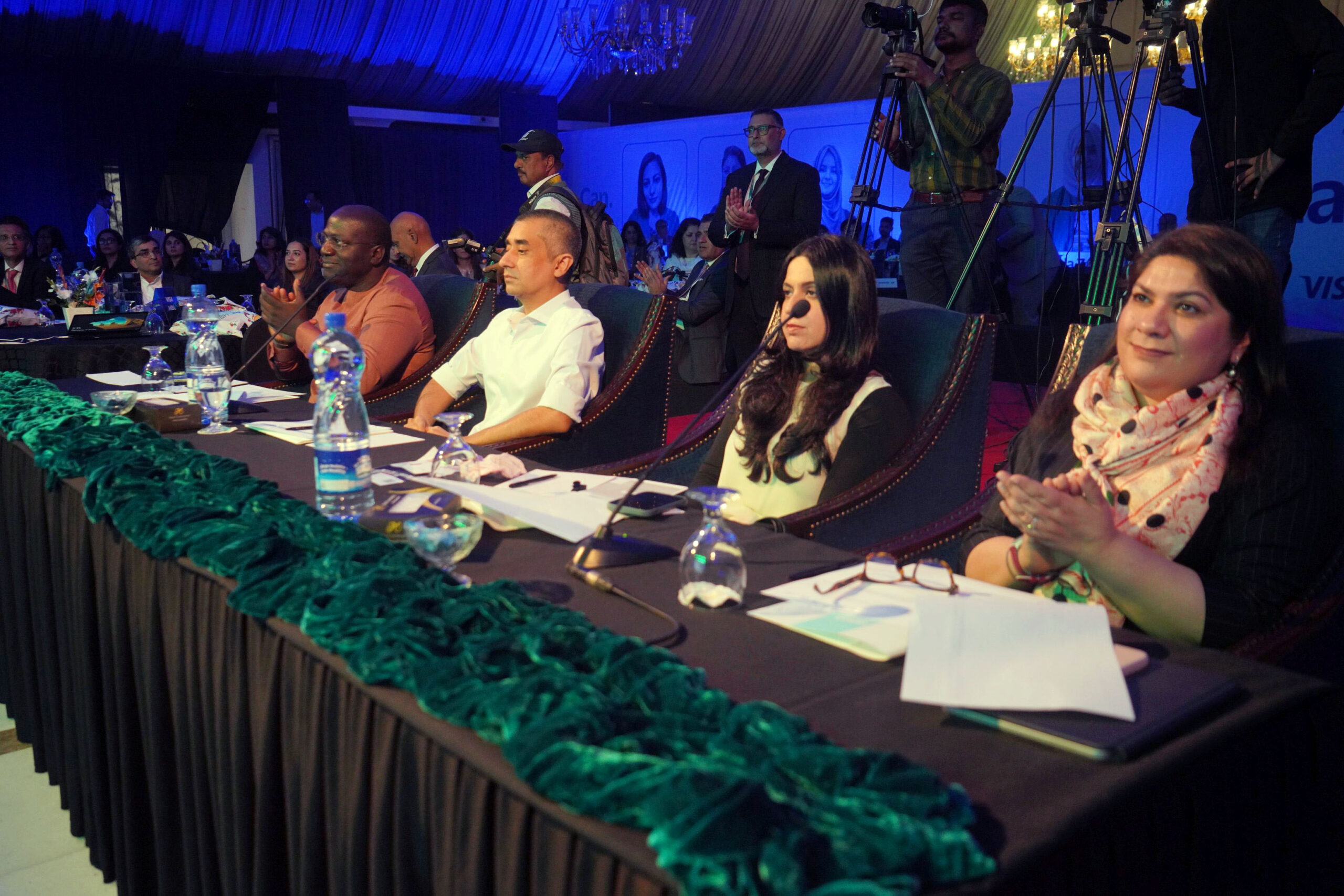
This expansion includes two low-cost pilot programs – one in Karachi with children of domestic staff, and another with a low-cost school outside Lahore. These pilots aim to prove that CodeSchool’s curriculum can be effective across different socioeconomic contexts.
“A child’s brain is a child’s brain, whether they’re sitting in the Netherlands or whether they’re sitting in Punjab,” Rehman asserts. “And so we didn’t find any issue with the kids. Our curriculum is exactly the same and the learning outcomes are exactly the same.”
The grant has also allowed CodeSchool to experiment with training non-tech individuals to deliver programming education – a crucial step in scaling their impact. “The linchpin is the teacher,” Rehman emphasises. “And how scalable is that?”
Looking ahead, CodeSchool sees potential for their model to be offered to schools as a new revenue stream. With the support of She’s Next, they are poised to make coding literacy as fundamental as reading and writing for Pakistan’s youth.

The second initiative that targets the education sector is Foster Learning, a startup that strives to fill a gaping hole in the market; the skills gap.
While CodeSchool focuses on early coding education, Foster Learning takes aim at a different challenge; improving employability through digitised education and skills-based training.
Foster Learning, co-founded by HiraJavaid, emerged from a recognition of educational disparities across Pakistan. “If you go to southern Punjab, you will see that there is actually a huge disparity.That was a trigger point to start this all,” Javaid recounts. The company’s journey began in Laiya, a small city in southern Punjab, with a flagship program teaching leadership and entrepreneurship.
Foster Learning’s approach combines entrepreneurship training with technical skills development. They developed a bilingual curriculum and partnered with industry leaders to offer guaranteed internships. This model has gained recognition from major institutions, including the Pakistan Engineering Council and Oxford University.
This initial batch grew from 20 to 43 graduates, all of whom now run their own businesses. “If we go back and look at it, we had around 20 students. That batch grew over time and by the time they all graduated, all 43 had started their own businesses.
From that one batch, today if we go back down the road, that class became out of 20 or 33 class by the time they all graduated, and right now all 43 of them have their own businesses,” Javaid proudly states.
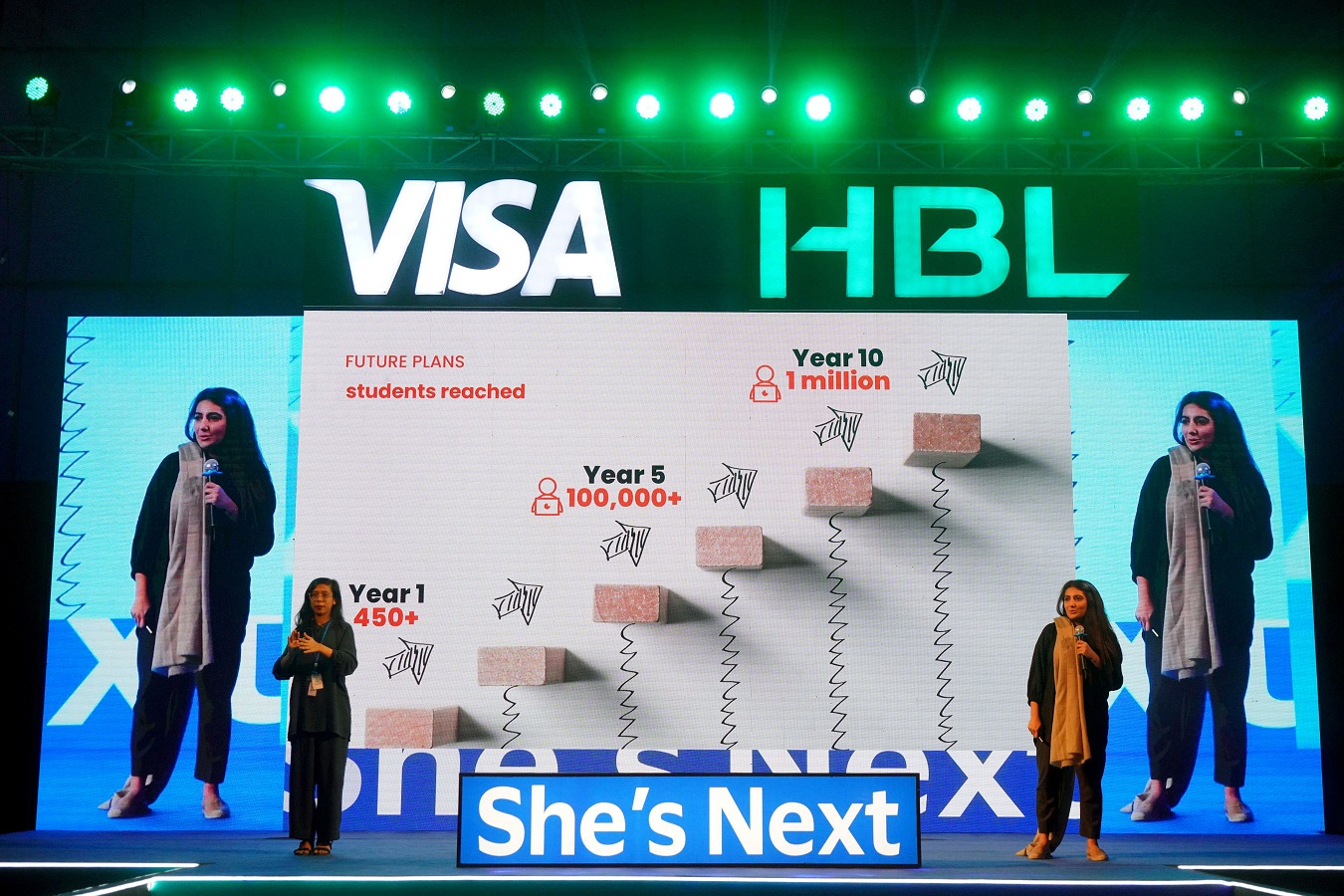
Before COVID-19, Foster Learning expanded to over 60 universities across 30 cities. The pandemic prompted a shift to online learning, reaching more remote areas like Kashmir and Balochistan.
Their impact extends beyond just their students. Foster Learning has been appointed as the computer science technical lead for the National Curriculum of Pakistan. “Now anyone registered in Pakistan to teach needs to follow the computer science guidelines that we have set,” Javaid notes. “This means Pakistan is now one of the few countries in the world that has a programming mandate, and programming is free from grade six onwards.”
The She’s Next Grant has enabled Foster Learning to enhance their technology infrastructure, invest in marketing, and expand their training programs. Looking ahead, they aim to reach 110 cities across Pakistan where universities are present, continuing to digitise education and improve employability on a national scale.
Driving digital change: from social media to e-commerce
Beyond education, women-led startups are making waves across various digital sectors in Pakistan. Three She’s Next grant recipients exemplify this trend, each tackling unique challenges in the digital landscape.
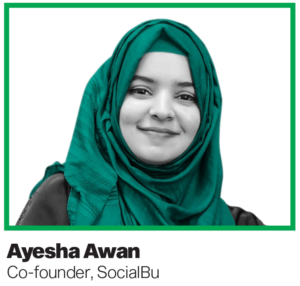
SocialBu is a digital platform that has set on a journey to empower social media management.
In today’s digital-first world, effective social media management can make or break a business. This is where SocialBu, co-founded by Ayesha Awan, comes in.
“SocialBu is an AI-powered social media management and automation tool,” Awan explains. “We offer it to social media managers, small business owners, influencers, and freelancers so that they can manage all their social media accounts from one place.”
The She’s Next grant has been a game-changer for SocialBu, enabling them to accelerate their product development and explore new AI-driven features. “We’ve been able to hire new developers who are now working on our AI-based features that are like AI content generation and AI-based reporting.”
For a bootstrapped startup like SocialBu, the grant provided crucial financial breathing room. “Since we are completely bootstrapped, we haven’t raised any money so far,” Awan notes. “So it has helped us with dealing with financial challenges while growing the team.”
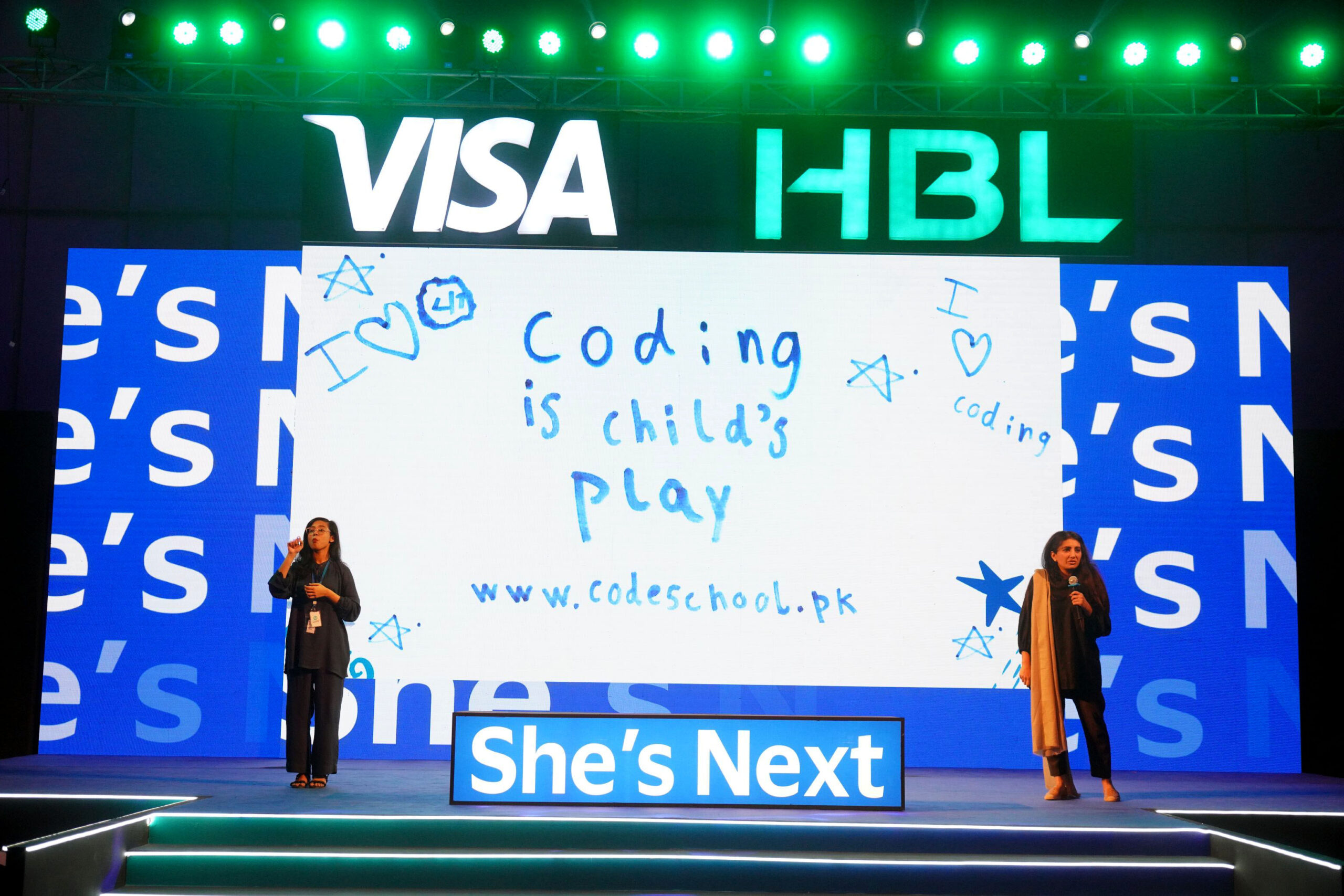
The impact of SocialBu extends beyond just convenience. By making social media management more accessible and efficient, they’re empowering small businesses and entrepreneurs, particularly women, to compete in the digital marketplace.
“We have been helping them manage their entire social media presence, even with one person,” Awan explains. “So they have been able to cut costs on their social teams and they’ve also been able to stay ahead with what’s going on in the market and compete with bigger competitors with bigger social teams.”
Looking ahead, SocialBu is focusing on developing more AI-centric features and even launching a new AI-based product. With the support of She’s Next, they’re poised to continue driving digital transformation for businesses across Pakistan and beyond.

Next in line is Bechlo.pk, an digital platform democratising e-commerce for women
Co-founded by ZianaSakhia, Bechlo.pk is an online social marketplace created specifically for women to buy and sell both new and pre-loved products.
“We connect buyers and sellers,” Sakhia explains. “So sellers will come and list their products on their platform, buyers will come and buy it. When sellers list their products, they don’t have to do any marketing, they don’t have to do any customer service, any conversations with the customers, we will take care of all of that for them.”
The idea for Bechlo.pk was born out of necessity during the COVID-19 pandemic when Sakhia and her co-founder found themselves stranded in Karachi, unable to find essential items for their babies. They discovered a wealth of products available through Facebook groups but encountered numerous challenges in actually completing transactions.
“The entire process of conducting the transactions was really choppy,” Sakhia recalls. “And it was such a shame because there was so much really good product out there.”
With a background in e-commerce, Sakhia saw an opportunity to bridge the gap between Pakistani women sellers and buyers, creating a safe, efficient platform reminiscent of global giants like Poshmark and Etsy.
Bechlo.pk emerged as a solution to the chaotic world of Facebook buying and selling groups, where women sought privacy and security in female-only spaces. Sakhia recognized that these women, often housewives running side businesses, lacked the technical expertise or scale to set up their own websites.
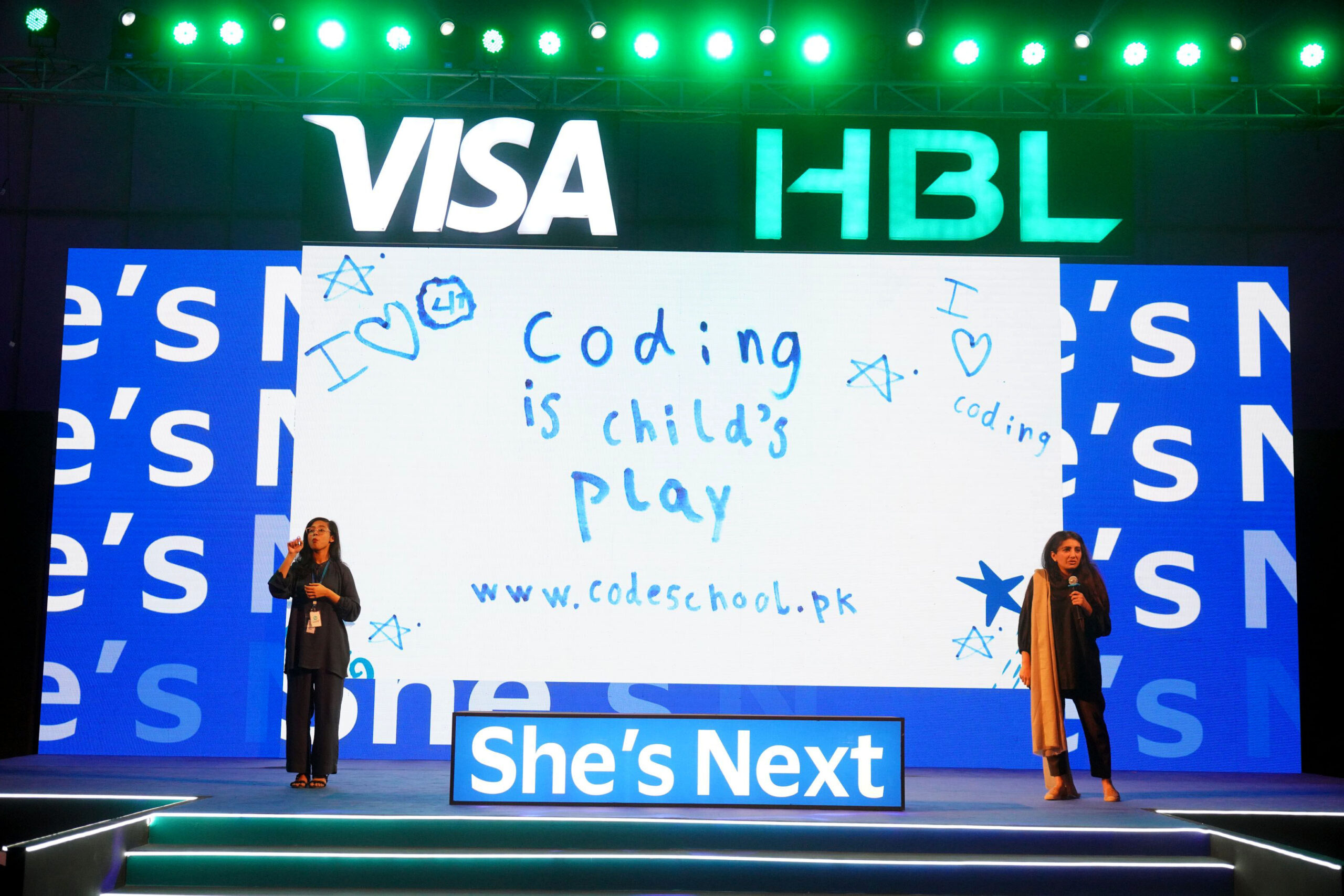
“It’s for women, by women,” Sakhia explains, highlighting how this approach fostered trust among users. The platform caters primarily to female sellers and buyers, though it welcomes men too, offering everything from clothing to corporate gifts.
Three years into their operation, Bechlo.pk had validated their market with a thousand customers. But to scale further, they needed a significant financial boost. Enter the She’s Next program, whose grant came at a crucial juncture.
“We were at a point where now we need to see if this is going to be able to scale further or not,” Ziana recalls. “And we needed a hefty amount of money to be able to do that.”
The She’s Next grant provided the necessary funds to enhance their website, improve user experience, and take Bechlo.pk to the next level. It was a turning point for the platform, enabling them to dream bigger and reach further in their mission to digitise and empower women sellers across Pakistan.
The She’s Next grant has enabled Bechlo.pk to enhance their technology infrastructure and improve user experience. “We had to redo the website,” Sakhia shares. “We felt that there was some feedback that we were getting where buyers and sellers wanted a better user experience.”
But perhaps more importantly, the grant has allowed Bechlo.pk to invest in seller training and support. “We did a lot of training and upskilling programs that we developed,” Sakhia explains. “We hired extra team members who basically have helped these sellers take their product and make it more presentable.”
The impact of Bechlo.pk goes beyond just facilitating transactions. By providing women with a platform to sell products from home, they’re enabling financial independence and empowerment. “These are the kind of things they’re going to tell us, that now I can go ahead and choose to make my own expenses,” Sakhia notes. “I can choose to buy formula for my child because I don’t have to rely on my mother-in-law or my husband giving the money for doing it.”
With the support of She’s Next, Bechlo.pk is well on its way to achieving its mission of digitising 100,000 female sellers by 2025, potentially impacting over half a million lives in the process.

Another company among these digital changemakers is Porter Pakistan, co-founded by RidaZainab. Porter Pakistan is tackling the travel and leisure sector with an innovative online platform for planning and booking experiences.
“We’re an OTA (Online Travel Agency) with an added feature of tech-enabled experience planning,” Zainab explains. “We have over 600 service providers from all over Pakistan on our platform.”
The She’s Next grant has been instrumental in enhancing Porter Pakistan’s technological capabilities. “We’ve used the grant money to improve our technical capabilities and we’ve also spent the money on designing and making the trip designer feature,” Zainab shares. The funding has also enabled them to launch their app on both iOS and Android platforms.
Moreover, the grant has allowed Porter Pakistan to invest in content creation and marketing, crucial elements in the highly visual world of travel planning. “With the Visa money, we basically were able to invest more in marketing and content creation,” Zainab notes. “So better graphics, working with bigger influencers, spending more on ads and being able to kind of cater to a much bigger market than we were able to do so before.”
Porter Pakistan’s platform is particularly impactful for women, who often make travel decisions for their families or companies. “35% of the clientele, of the decision makers, I would say, on behalf of their family, or on behalf of a corporate, are mostly females,” Zainab observes. By providing a transparent, detail-rich platform, Porter Pakistan is making travel planning more accessible and trustworthy for this key demographic.
Beyond the Grant
While the financial support provided by She’s Next has been crucial, the program’s impact extends far beyond the monetary grant. All five grant recipients emphasised the value of the mentorship, training, and networking opportunities provided by the She’s Next Club.
“The mentorship program was really valuable because it always helps to get a fresh set of eyes on your business,” Rehman of CodeSchool notes. “We had very curated mentorship sessions where there were five winners and there was an expert.”
Javaid of Foster Learning echoes this sentiment: “I think mentorship sessions were really great. They definitely gave me some fresh perspectives from a finance point of view, and an outreach point of view, shifting focus to the trends in marketing right now.”
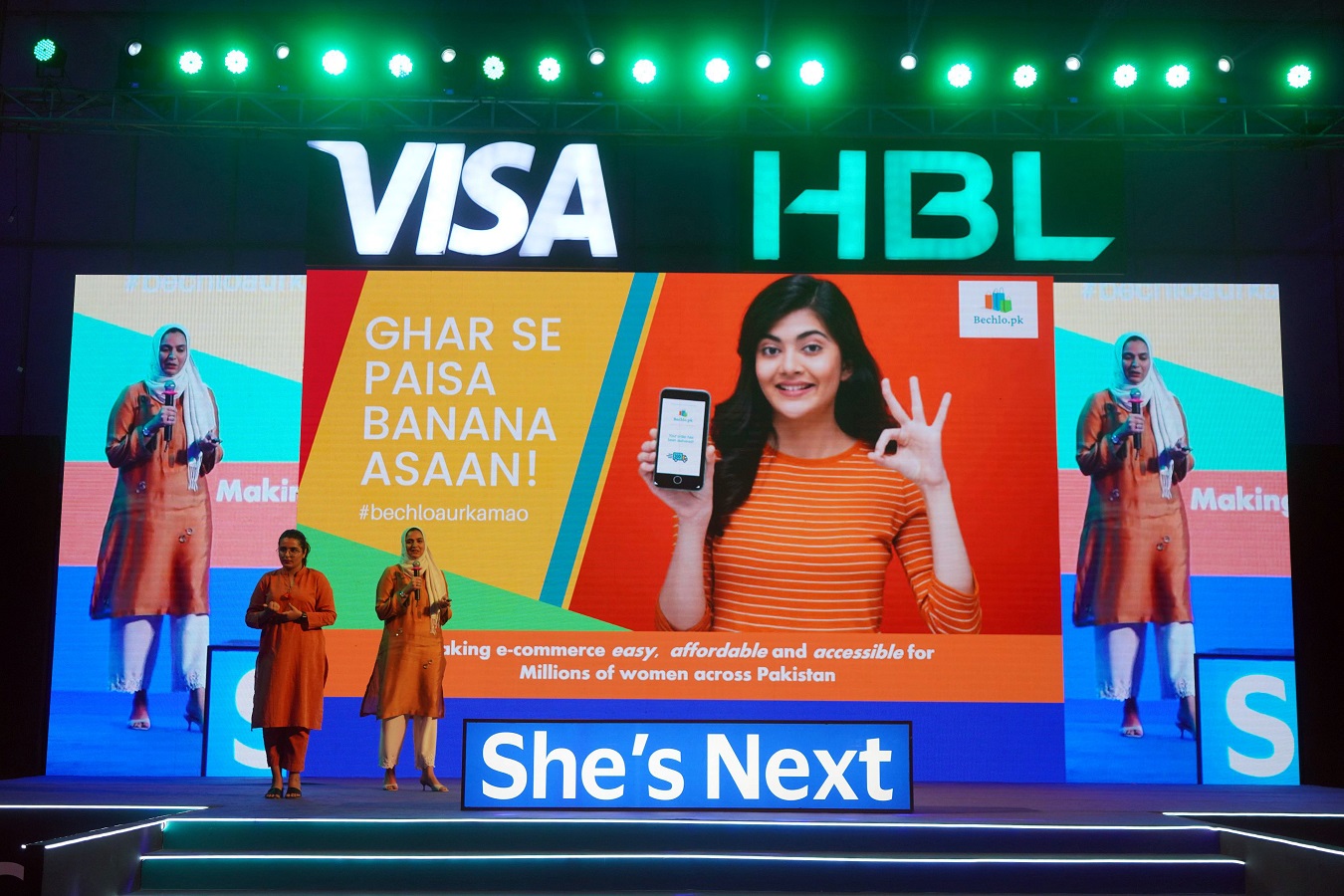
For Awan, the program provided much-needed structure and community in the often isolating world of entrepreneurship. “The loneliness of entrepreneurship was shocking even for someone as introverted as me,” she admits. “And so I think the structure of the She’s Next program was amazing because it pulls you out and it takes you into a communal shared space and gives you an excuse to interact with other like-minded people.”
Sakhia highlights how the program has boosted their credibility and opened doors to new partnerships. “Having the Visa association really helped build us as a reliable, trustworthy brand,” she notes. “Because e-commerce is one of those industries where everyone’s always doubting you and establishing trust is crucial.”
For Zainab, the program has provided invaluable guidance on effectively utilising the grant funds. “Most of the programs, most of the grant programs, I would say, do not focus on the mentorship part and do not have that training available where they guide us on how to properly use the funds in order to maximise the output,” she observes.
Challenges and Opportunities
As these women-led startups continue to grow and evolve, they face both challenges and opportunities unique to Pakistan’s business landscape.
One common challenge is the difficulty in raising capital. “To raise money as a woman entrepreneur, the biggest shock, which took us a year, like it’s been the last one year has just been this one shock,” Rehman shares. “All we were interested in is the quality of education of the kids, right? But to raise capital is almost like a different language.”
Sakhia highlighted how Bechlo.pk’s journey reveals the unique challenges faced by women entrepreneurs in Pakistan, particularly in smaller towns and cities. Many women lack access to physical retail spaces and transportation, limiting their ability to discover and purchase desired products. The platform addresses this by bringing a wide range of items, including pre-loved and Western wear, to their fingertips through social media and e-commerce.
“A significant hurdle is the misconception that tier-two and tier-three cities only house low-income populations. In reality, these areas, including industrial hubs like Faisalabad and Sialkot, have a substantial market with purchasing power. Bechlo.pk taps into this potential by connecting resellers from these cities with a broader customer base,” she explains.
Another area where Sakhia believes to be creating an impact is financial independence for women; a challenge many women in Pakistan face, due to the large unbanked female population in the country. “Perhaps the most crucial challenge is the lack of financial independence for women. Many sellers initially operate discreetly, using family members’ accounts for transactions. Bechlo.pk encourages women to open their own accounts, fostering financial autonomy and formal business practices. This shift often leads to increased respect and support from family members,” Sakhia shares.
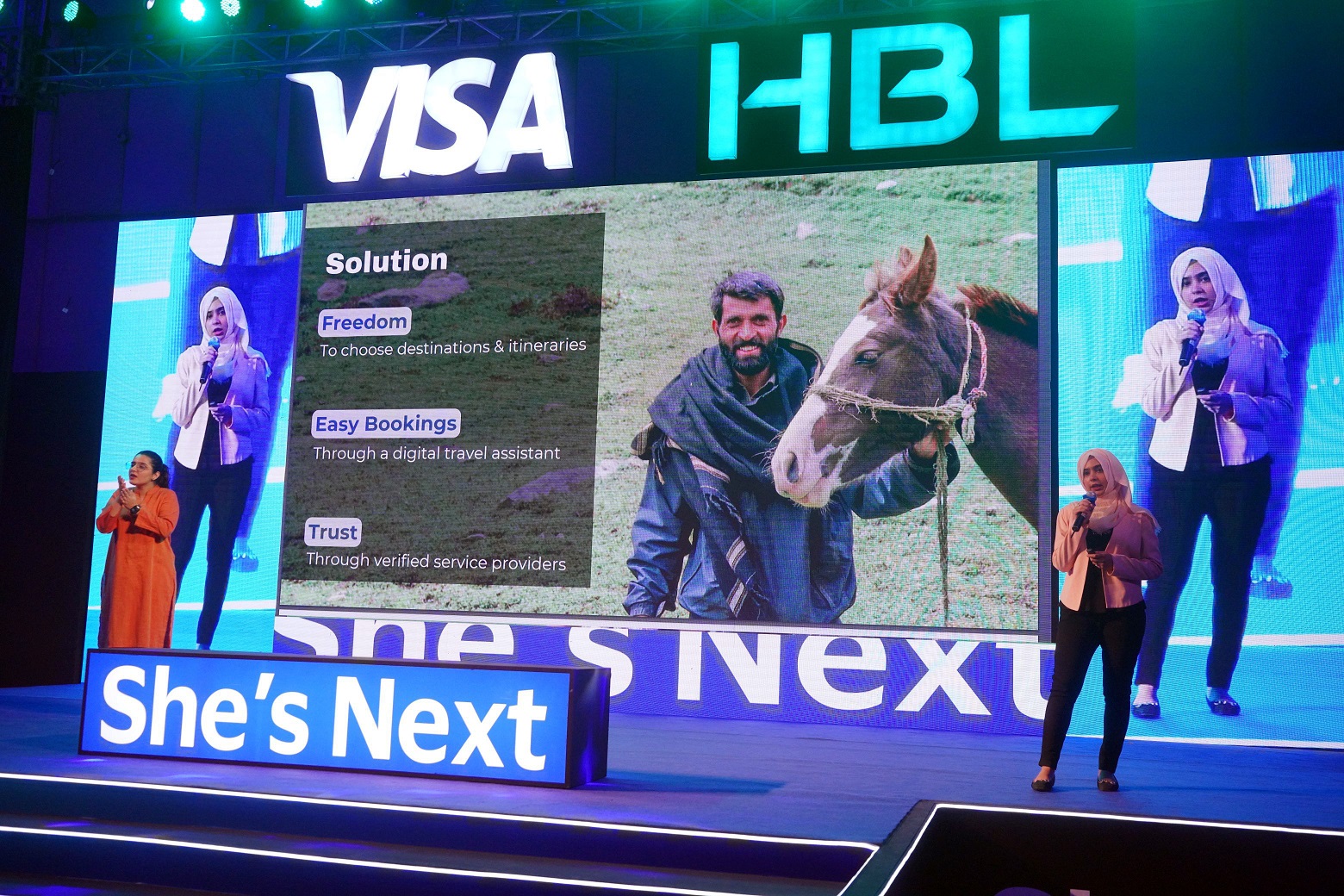
So, the platform also tackles the issue of unbanked women by promoting digital wallets, which have become increasingly accessible. This financial inclusion is a game-changer, empowering women to manage their earnings and make independent purchasing decisions, gradually altering their social and economic status within their families and communities.
Despite these age-old challenges, the entrepreneurs remain optimistic about the future. They see tremendous potential in Pakistan’s large, young population and the country’s ongoing digital transformation.
The She’s Next program, by providing not just funding but also mentorship and a supportive community, is playing a crucial role in helping these women-led startups navigate these challenges and seize the opportunities ahead.
A new chapter for women’s entrepreneurship in Pakistan
The stories of these five women entrepreneurs, and the impact of the She’s Next program, paint a picture of a new chapter unfolding in Pakistan’s business landscape. Despite the challenges, these women are driving innovation, creating jobs, and paving the way for a more inclusive digital economy.
From revolutionising education to transforming e-commerce and travel planning, these startups are not just building successful businesses, but also reshaping entire industries and empowering other women in the process.
The She’s Next program, with its combination of funding, mentorship, and community-building, is proving to be a powerful catalyst for this change. By focusing on women entrepreneurs, Visa is tapping into a vast reservoir of untapped potential that could drive Pakistan’s economic growth for years to come.
Indeed, as these women continue to innovate, adapt, and overcome challenges, they’re not just building their own businesses – they’re laying the groundwork for a more inclusive, diverse, and dynamic business ecosystem in Pakistan. And with programs like She’s Next supporting them, the future looks brighter than ever for women entrepreneurs in the country.









